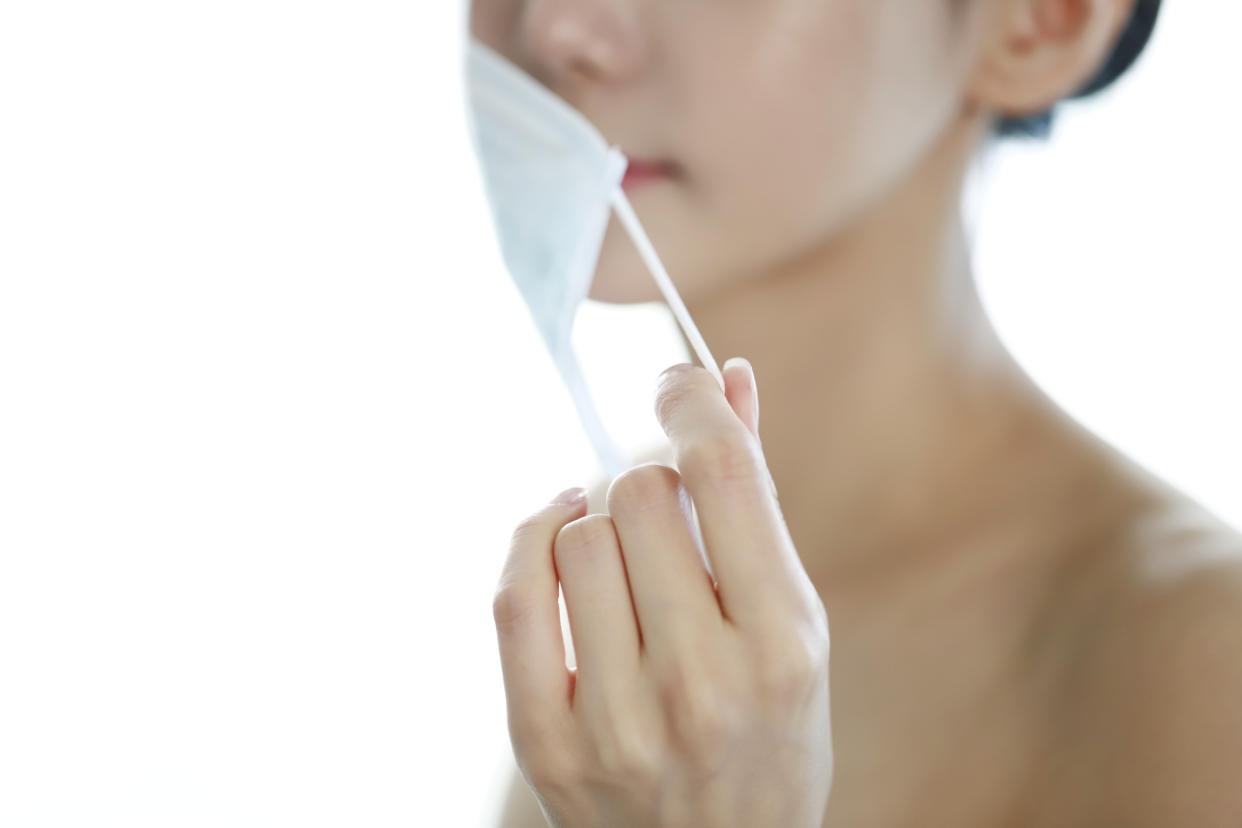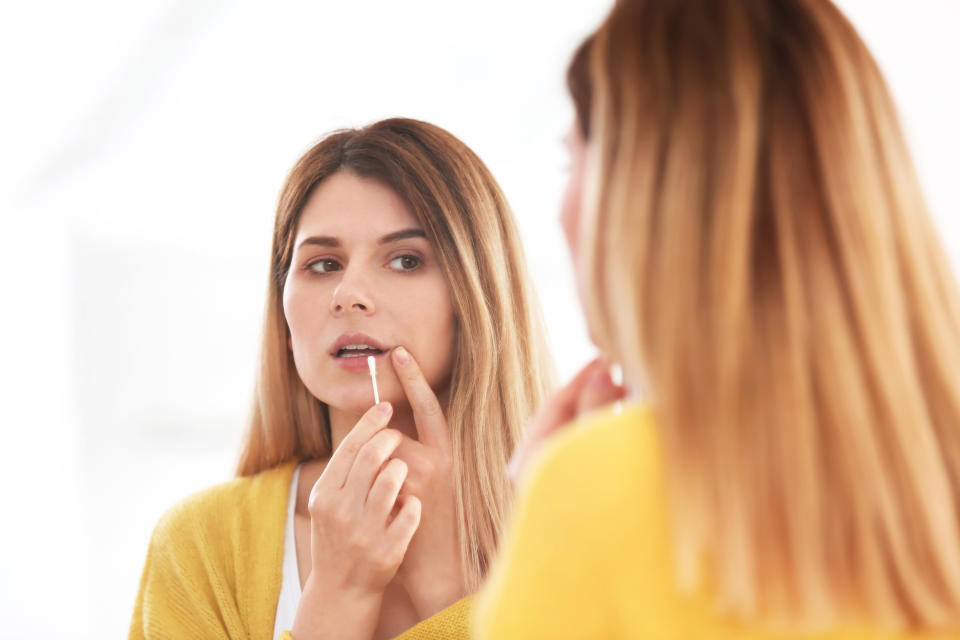Could wearing a face mask trigger a cold sore and what to do if you do get one?

You’ve got your supply of face masks and you’re gradually getting used to wearing it about town.
You’ve even figured out how to control ‘maskne’ and other face-covering skin issues. Oh, and how to stop your glasses steaming up.
But there’s one other potential mask-wearing side effect we hadn’t considered...cold sores.
“Some dermatologists have commented that wearing face masks may increase the risk of cold sores,” explains Dr Deborah Lee, from the Dr Fox Online Pharmacy.
“However, even if you do suffer from cold sores, you should still be following the recommendations to wear a face mask and help prevent the transmission of COVID-19.
“The risk from becoming infected with COVID-19 is far greater than the risk of any serious repercussions from having cold sores.”
Read more: You can buy a personalised face mask to make you look more like you
Can wearing a face mask trigger a cold sore?
A cold sore is an episode of infection with the herpes simplex virus.
There are two types, type 1 and type 2. And although historically the type 1 virus caused cold sores, and type 2 caused ulcers on the genitalia, these days, cold sores on the mouth can be caused by both types, Dr Lee explains.
“Between 60-90% of people already have anti-herpes antibodies, although most are unaware they have ever been infected. After a first infection, the virus makes a home inside some of our nerves, and then reactivates from time to time, causing painful blisters,” she says.
Having a cold sore can be pretty unpleasant, although many sufferers actually have very mild symptoms and most cold sores heal within 1-2 weeks.
While it isn’t really known why people suddenly develop a cold sore, Dr Lee says trigger suggestions include exposure to sunlight, being too hot or too cold, excessive skin dryness or cracking, physical and emotional stress, and anything which weakens the immune system.
“Wearing a mask for long periods means your mouth and lips will experience more heat,” she adds. “Heat is dehydrating and can contribute to skin drying and cracking.
“Additionally we are all under stress from the effects of the pandemic. So, for these reasons, we may see an increase in cold sores in those using face masks.”
Read more: Parents warned of face mask suffocation risk for babies and toddlers

How to prevent a cold sore outbreak
According to Dr Lee the best thing you can do to prevent a cold sore flare-up is take steps to care for yourself, and your skin.
Use a sunscreen on your face and lip with at least an SPF30 UVB protection, and 4 out of 5 stars UVA rating (British Association of Dermatologists).
Avoid dry and cracked lips - use a moisturiser regularly such as Vaseline. There are many lip balms which may be helpful.
Avoid lip licking.
Try and reduce stress. While this isn’t easy at the moment, but Dr Lee suggests going back to basics by trying to find time to relax, practice mindfulness, try medication, get enough sleep.
Support your immune system – Eat a proper healthy balanced diet with plenty of fruit and vegetables, take regular exercise and get enough sleep.
Manage any chronic medical conditions the best you can. Diabetes for example, if not well controlled, increase the risk of many infections.
If you do get a cold sore, Dr Lee suggests keeping it clean by bathing it two or three times a day with salt water.
For painful cold sores you can take simple pain killers if necessary, such as paracetamol or ibuprofen. Lidocaine, as a gel or a spray can help any discomfort.
“There are complementary therapies for cold sores, such as lysine, lemon balm, and zinc oxide cream,” Dr Lee adds. “Evidence of their efficacy is limited but they offer an alternative.”
According to Dr Lee the most common antiviral for herpes simplex infections is aciclovir. However, medical studies only show this is effective when started early in the infection, and only during a first attack.
“Aciclovir is generally not very effective for cold sores, the vast majority of which are recurrent attacks,” she explains.
“When you get a cold sore, aciclovir cream for topical application, has not been shown to speed the healing time or reduce symptoms.”
But if you get recurrent cold sores, taking regular doses of aciclovir by mouth may be helpful.
“In one study, where people who had at least five attacks of cold sores per year, where randomly assigned to with aciclovir 400 mg twice a day or a placebo and followed up for four months, the number of cold sore outbreaks was reduced by 50%,” she explains.
Read more: How to communicate well while wearing a face mask
Reducing transmission of herpes in the era of COVID-19
Like COVID-19, the cold sore virus is easily killed by simple soap and water, so keep washing your hands, and avoid touching your face when you have a cold sore.
“Herpes viruses can live on dry surfaces outside the body for up to 8 weeks, so when you have a cold sore, it would make sense to wash your mask regularly, and avoid sharing your mask, or letting other people handle it,” Dr Lee adds.
Herpes infections are dangerous for pregnant women, babies, and small children, so make sure you keep away when you have a cold sore.
“You are infectious until the lesion is completely dry and the skin is healed – usually around two weeks,” Dr Lee adds.
For more information visit Herpes Virus Association



